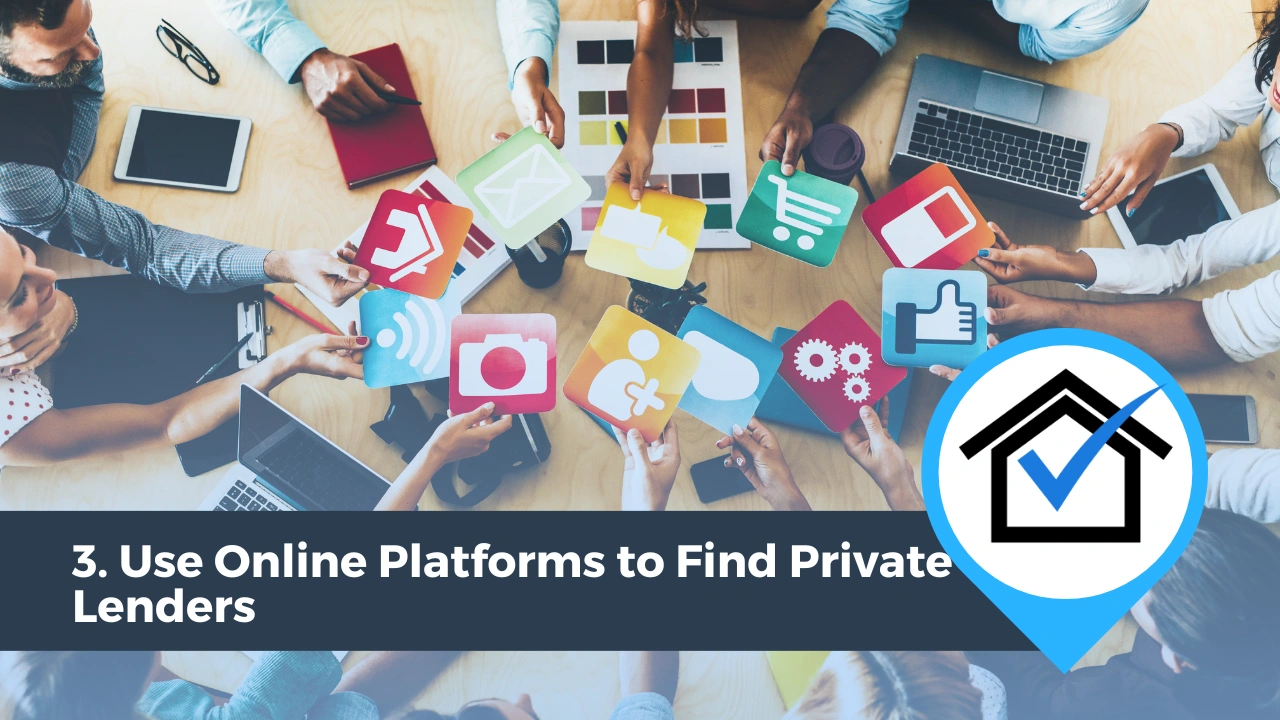
How to Find Private Money Lenders for Real Estate Deals
Apr 11, 2025
If you're a new investor trying to figure out how to find private money lenders, you're not alone—and you're in the right place. Private money is one of the most powerful tools in real estate, but most beginners have no idea where to start. The truth is, finding people who are willing to fund your deals doesn’t require perfect credit or years of experience. It requires trust, a solid plan, and knowing where to look.
Private lenders aren’t institutions—they're individuals looking for solid returns. Whether they’re friends, family members, or fellow investors, they can help you close deals fast without the red tape of traditional financing. And when you know how to approach and work with them properly, you can unlock funding for multiple deals—not just one.
At Real Estate Skills, we specialize in teaching new investors how to fund deals and build real estate businesses from the ground up. In this guide, we’ll walk you through everything you need to know about private money lending—step by step.
Here’s what we’ll cover:
- What Are Private Money Lenders in Real Estate?
- Why Work With Private Money Lenders?
- How to Find Private Money Lenders (Step-by-Step)
- How to Approach Private Money Lenders Professionally
- How to Use Private Money Lenders to Fund Real Estate Deals
- Legal & Financial Considerations When Using Private Money
- How to Build Long-Term Relationships With Private Money Lenders
- Final Thoughts on How to Find Private Money Lenders
Ready to Take the Next Step in Real Estate Investing? Join our FREE live webinar and discover the proven strategies to build lasting wealth through real estate.
Whether you're just getting started or ready to scale, we'll show you how to take action today. Don't miss this opportunity to learn the insider tips and tools that have helped thousands of investors succeed! Seats are limited—Reserve Your Spot Now!
What Are Private Money Lenders in Real Estate?
Private money lenders are individuals—not banks or institutions—who lend their own capital to real estate investors to fund deals. These private investors could be anyone from a family friend with cash sitting in a retirement account to a fellow investor looking for a passive return. They’re often referred to as non-institutional lenders because they don’t work through traditional loan channels like mortgage companies or hard money brokers.
What makes private money so attractive, especially for beginners, is how flexible it can be. Unlike banks that require credit checks, income verification, and long approval processes, private lenders are often more focused on the deal itself: the numbers, the exit strategy, and your ability to deliver.
For private real estate lenders for beginners, the terms can vary widely—but the relationship tends to be built on trust and communication, not rigid underwriting guidelines. And since these are private funding sources, you often have more room to negotiate interest rates, timelines, and repayment terms that actually work for your business.
This kind of alternative real estate financing is a game-changer if you’re just starting out. At Real Estate Skills, we teach new investors how to find and work with private lenders the right way—so you can secure funding without relying on banks or perfect credit.
Read Also: 6 Best Transactional Lenders for Real Estate Investors
Private Money vs. Hard Money: What’s the Difference?
If you’re new to real estate investing, it’s easy to confuse private money vs. hard money—but understanding the difference is key to choosing the right funding source for your deals.
Hard money lenders are usually companies or professionals who lend money as a business. They have set interest rates, fees, and approval processes. It’s still faster than a traditional mortgage, but it’s more structured and often more expensive. Hard money is great for short-term flips—but it comes with rigid terms and less flexibility.
Private money, on the other hand, comes from relationship-based lenders—people you already know or meet through networking. These could be friends, colleagues, or real estate capital partners who are open to lending their own money for a solid return. There’s typically more room for negotiation on terms, and deals are built on trust rather than strict qualifications.
At Real Estate Skills, we show investors how to build lasting relationships with private lenders—not just one-off deals. When done right, private money isn’t just capital—it’s a partnership.
Read Also: Flip Funding LLC: Hard Money Lender Review (2025)
Why Work With Private Money Lenders?
For new real estate investors, speed and flexibility can make or break a deal—and that’s exactly where the benefits of private money loans shine. Unlike banks that can take weeks to approve funding, private lenders can make decisions in a matter of days—sometimes even hours. That kind of speed gives you a serious edge in competitive markets.
Another major advantage of working with private lenders is flexibility. These individuals aren’t bound by strict lending rules or cookie-cutter loan packages. You can negotiate terms that work for your deal, whether that’s interest-only payments, deferred payments, or a custom repayment plan. This opens the door to a variety of creative financing options that you’d never get from a traditional lender.
More importantly, private money is built on relationships. You’re not just applying for a loan—you’re starting a conversation with someone who could become a long-term financial partner. As you prove yourself deal after deal, you create trust-based funding in real estate—which means more capital, better terms, and less stress down the road.
Read Also: 5 Best Bridge Loan Lenders In 2025
How to Find Private Money Lenders (Step-by-Step)
If you're trying to figure out how to get private money for real estate, the process starts with one key principle: relationships. Private lenders are individuals—not banks or institutions—who are willing to invest in your deal in exchange for a return. Many of them are already looking for new opportunities, but they’re not advertising it. You just have to know where to look and how to present yourself.
The good news is that finding private investors for real estate doesn’t require perfect credit, a huge track record, or a mountain of experience. What you really need is a good deal, a clear plan, and the ability to communicate confidently and professionally. When you approach someone with a win-win opportunity—and you can explain how they’ll get paid back—it becomes a lot easier to secure funding.
Whether you’re wholesaling, flipping, or buying rentals, knowing how to get funding from private lenders opens the door to more deals and faster growth. At Real Estate Skills, we teach investors exactly how to do this through proven, real-world strategies that anyone can learn.
In the next few sections, we’ll break down the four most effective ways to find private money lenders, step-by-step:
- Tap Into Your Existing Network
- Attend Local Real Estate Meetups & Investor Events
- Use Online Platforms to Find Private Lenders
- Join Real Estate Investing Communities

Tap Into Your Existing Network
When you're first learning how to find private money lenders, one of the most overlooked (and powerful) places to start is your own network. You might not think you know any private investors, but chances are you do—or you're only one connection away. Friends, family members, co-workers, or even past business contacts may have capital sitting in a retirement account or savings and would love the chance to earn a better return than they’d get from a bank.
Private lending is often built on trust, not just numbers. That’s why your personal circle can be a great source of trust-based funding in real estate. These relationships are already warm, and people are more likely to work with someone they know than a stranger off the street.
These are what we call relationship-based lenders—individuals who invest because they believe in you, not because they saw an ad or cold email. At Real Estate Skills, we show new investors how to present opportunities in a way that’s professional, low-pressure, and rooted in real value.
Start there. You don’t need hundreds of contacts—just one “yes” can fund your first deal.

Attend Local Real Estate Meetups & Investor Events
One of the best ways to learn how to find private money lenders is to go where the money already is. Local real estate meetups, investor mixers, and REIA (Real Estate Investors Association) meetings are filled with people who either lend money or know someone who does. These events are low-pressure environments where conversations flow naturally—and they’re goldmines for networking for real estate funding.
Don’t walk into these events trying to “pitch” everyone. Instead, focus on building connections and learning what others are working on. When you’re genuine and prepared, the right people will take interest. Many seasoned investors become real estate capital partners simply because they’re looking for passive ways to grow their wealth—and partnering with someone like you could be the perfect fit.
Whether you're finding private investors for real estate or just expanding your circle, in-person networking builds the trust and credibility that private lending relationships are built on. At Real Estate Skills, we teach our students how to navigate these conversations and make meaningful connections that lead to long-term funding opportunities.

Use Online Platforms to Find Private Lenders
If you're serious about learning how to find private money lenders, don't underestimate the power of the internet. There are dozens of online platforms and communities where real estate private money lenders are actively looking for opportunities. From LinkedIn and BiggerPockets to Facebook investor groups and crowdfunding platforms, these digital spaces can help you connect with experienced lenders far beyond your local network.
The key is showing up with value. Ask smart questions, share what you're working on, and engage in conversations. You’re not just searching for private funding sources—you’re planting seeds that can grow into real financial partnerships.
Some platforms even allow you to post deal opportunities (following their guidelines, of course), which can attract lenders who specialize in your specific strategy—whether that’s flipping, BRRRR, or rentals. At Real Estate Skills, we teach our students exactly where and how to position themselves online to attract serious lenders who are ready to fund deals.
In the next section, we’ll show you how to take it even further by plugging into real estate investing communities built around collaboration.

Join Real Estate Investing Communities
One of the most effective ways to learn how to find private money lenders is by immersing yourself in active real estate investing communities. These communities—both online and local—are filled with flippers, wholesalers, buy-and-hold investors, and yes, real estate private money lenders looking for ways to put their capital to work.
Whether it’s a Facebook group, a REIA club, a coaching program, or even an online forum like BiggerPockets, these spaces give you a chance to build authentic relationships over time. That’s key because many private lenders are relationship-based lenders. They’re far more likely to fund your deal if they’ve seen you consistently show up, share insights, and engage with others.
These same communities are also great for seller lead generation, giving you not only access to funding but also to potential deals. At Real Estate Skills, we teach new investors how to leverage these networks strategically—so they’re not just taking up space, but actually building trust and attracting capital partners.
If you’re ready to scale your business, don’t just find a lender—become part of a community where funding opportunities find you.
How to Approach Private Money Lenders Professionally
Knowing how to approach private money lenders can be the difference between getting funded and getting ignored. Most private lenders aren’t just looking for a great deal—they’re looking for someone they can trust. First impressions matter, especially when you're asking someone to invest their hard-earned money into your real estate project.
Start by being prepared. Before you ever reach out, know your numbers, your strategy, and your exit plan. Private lenders want to see that you’ve done your homework and that you’re not flying by the seat of your pants. That confidence builds credibility.
If you’re wondering how to talk to private money lenders, focus on transparency. Share why the deal works, what the timeline looks like, and how they’ll get paid back. Be honest about risks, and always follow up with documentation. A professional presentation—even if it’s simple—goes a long way.
Don’t be afraid to talk about private lender terms and rates early on. Lenders want to know what’s in it for them. The more direct and respectful you are, the more likely they’ll take you seriously.
At Real Estate Skills, we help new investors build confidence through practice. Learning how to initiate trust-based funding in real estate isn’t about being slick—it’s about being real, prepared, and focused on creating a win-win.
What Private Lenders Want to Hear From You
When speaking to a potential lender, it’s not just about selling the deal—it’s about showing that you’re someone worth partnering with. Private lenders want confidence, clarity, and a game plan. They’re not expecting you to be a millionaire; they just want to know that their money is safe and that you’ve thought things through.
One of the best ways to stand out is to present creative financing options that show flexibility and problem-solving. Whether you’re offering interest-only payments, balloon payments, or equity splits, showing that you understand how to structure private money real estate deals tells them you’re not winging it.
Lenders also want to know you can find opportunities. Mention your pipeline, your deal sources, or your process for generating real estate seller leads. When they see you’re actively working in the market, it builds trust.
How to Use Private Money Lenders to Fund Real Estate Deals
Once you’ve made a connection, it’s time to understand how to use private money lenders to actually fund your deals. The process is simpler than many new investors think—but it still requires clear communication and proper planning from start to finish.
First, you’ll present your deal to the lender, showing things like the purchase price, rehab costs, after-repair value (ARV), and timeline. Be transparent and walk them through how the deal will play out—and how they’ll get paid. Many private real estate lenders for beginners will want to see documents like a purchase agreement, contractor bids, and a breakdown of expected profits.
Once terms are agreed on, the lender will wire funds directly to the title or escrow company, where everything is managed professionally. A promissory note and deed of trust (or mortgage, depending on your state) are usually recorded to protect the lender’s interest.
Getting funding from private money lenders often feels less formal than going through a bank, but don’t treat it casually. You’re still managing someone else’s money, and professionalism builds long-term trust.
Deal Structures: Interest, Terms, and Exit Plans
Understanding private lender terms and rates is key to putting together a deal that works for both you and your lender. Most private money loans are short-term—typically 6 to 12 months—with interest rates ranging from 8% to 12%, depending on the lender’s risk tolerance and experience working with you. Many also charge points (usually 1–3% of the loan amount) upfront at closing.
These loans are secured by the property itself, which serves as collateral. That means if the borrower defaults, the lender has legal rights to take possession of the property to recoup their investment. Everything should be documented through a promissory note and a deed of trust or mortgage—depending on your state—making the agreement enforceable and clear.
One of the major benefits of private money loans is the ability to negotiate creative financing options like interest-only payments, balloon payments, or even equity partnerships in some cases. But every deal needs an exit plan—whether that’s a flip, refinance, or sale. The clearer your plan, the more confident your lender will feel.
At Real Estate Skills, we help new investors understand how to structure deals that protect the lender while maximizing profits—so everyone wins.
*For in-depth training on real estate investing, Real Estate Skills offers extensive courses to get you ready to make your first investment! Attend our FREE Webinar Training and gain insider knowledge, expert strategies, and essential skills to make the most of every real estate opportunity that comes your way!
Legal & Financial Considerations When Using Private Money
Before jumping into your first deal, it’s important to understand the legal structure of private money deals. While private financing gives you more flexibility than a traditional mortgage, it still requires the right paperwork and legal protections for both you and your lender.
At a minimum, you’ll need a promissory note outlining the loan terms (amount, interest rate, repayment schedule), and a deed of trust or mortgage that secures the loan with the property as collateral. These documents protect the lender’s interests and should always be reviewed or prepared by a real estate attorney—especially if you’re new to the process.
Many states also have usury laws, which set limits on interest rates and fees lenders can legally charge. Even if you and your lender agree on certain terms, exceeding your state’s cap could void the agreement or create legal headaches. Transparency and proper disclosures are key to staying compliant.
Private money is one of the most powerful tools in alternative real estate financing, but it must be used responsibly. At Real Estate Skills, we help investors not only find private lenders—but also protect those relationships with smart, ethical real estate investing strategies that ensure both parties are secure and well-informed.
How to Build Long-Term Relationships With Private Money Lenders
The goal isn’t just to get funded once—it’s to build real, lasting partnerships. When you focus on working with private lenders long-term, you unlock the kind of stability and support that can scale your real estate business faster than almost anything else.
Private lenders aren't just funding deals—they're investing in you. That’s why trust-based funding in real estate is so valuable. It’s not about closing one deal—it’s about creating a relationship built on communication, performance, and shared success.
Here are a few ways to turn a one-time lender into a real estate capital partner:
- Communicate consistently: Keep lenders updated throughout the project—even if there’s no major news.
- Deliver on your promises: Hit your numbers and close on time whenever possible.
- Be transparent: If something changes, communicate early and honestly.
- Show results: After closing, share your final numbers and outcomes.
- Offer future opportunities: Let them know you’d like to work together again and give them first look at your next deal.
- Explore creative financing options: As the relationship grows, you can propose more flexible or customized deal structures.
At Real Estate Skills, we teach new investors how to not just find funding—but build partnerships that can support deal after deal, year after year.
Final Thoughts on How to Find Private Money Lenders
Learning how to find private money lenders is a skill that can completely transform your real estate investing journey. Whether you're flipping houses, building a rental portfolio, or just closing your first deal, private lenders offer speed, flexibility, and access to funding that traditional banks simply can't match. The key is building trust, communicating clearly, and showing up prepared.
Ready to Take the Next Step in Real Estate Investing? Join our FREE live webinar and discover the proven strategies to build lasting wealth through real estate.
Whether you're just getting started or ready to scale, we'll show you how to take action today. Don't miss this opportunity to learn the insider tips and tools that have helped thousands of investors succeed! Seats are limited—Reserve Your Spot Now!
*Disclosure: Real Estate Skills is not a law firm, and the information contained here does not constitute legal advice. You should consult with an attorney before making any legal conclusions. The information presented here is educational in nature. All investments involve risks, and the past performance of an investment, industry, sector, and/or market does not guarantee future returns or results. Investors are responsible for any investment decision they make. Such decisions should be based on an evaluation of their financial situation, investment objectives, risk tolerance, and liquidity needs.









